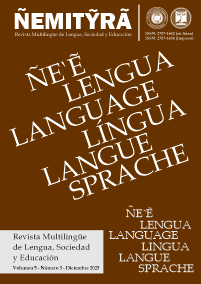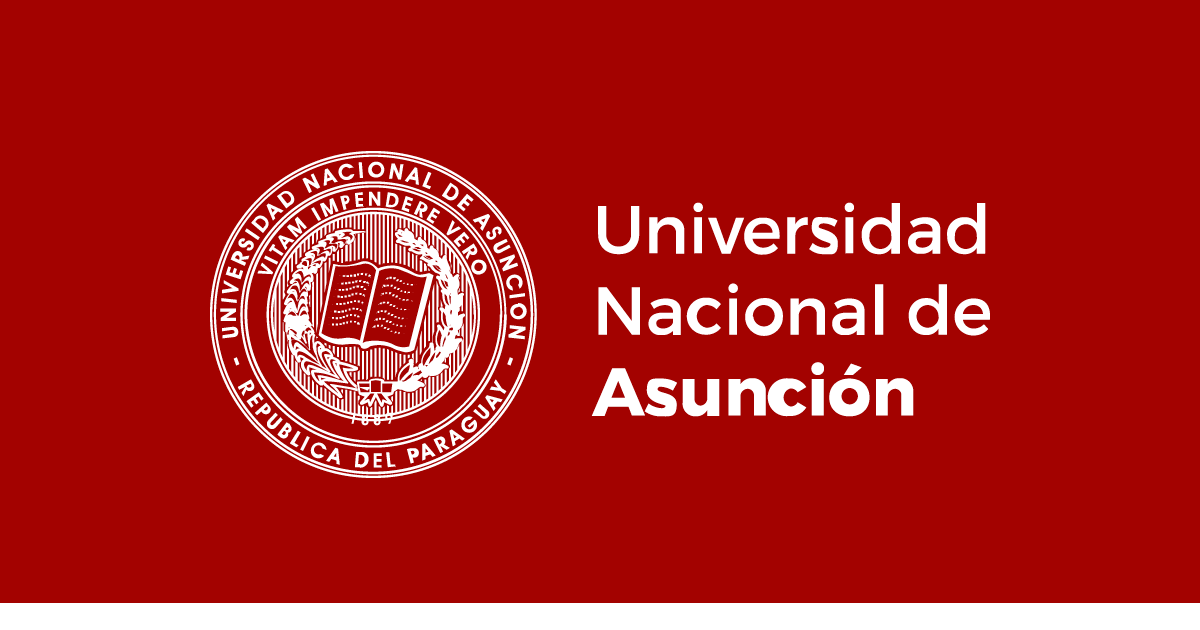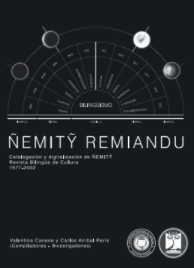Em que Português nos (des)entendemos? Lusofonia e suas derivas em contexto Língua de Herança
DOI:
https://doi.org/10.47133/NEMITYRA20232d12-3A5Palabras clave:
língua de herança, língua não materna, língua estrangeira, língua segunda, língua adicional, língua de acolhimentoResumen
A língua como sistema linguístico é utilizada por uma determinada comunidade para a efetiva comunicação entre os seus membros, que têm conhecimento das normas que formam esse sistema. Ao fazer uso destas regras, a hipótese destes falantes em produzir mensagens é incontável. A língua com fenómeno vivo está em constante evolução, mas pode ser classificada a partir de várias nomenclaturas: Língua de Herança (LH), Língua Não Materna (LNM), Língua Estrangeira (LE), Língua Segunda (L2), Língua Adicional (LA), Língua de Acolhimento (LAc). Não obstante tais denominações serem muito distintas, torna-se necessário estabelecer relações mais definidas entres elas, para que se assumam abordagens mais sólidas. Este trabalho propõe algumas acepções que abrangem as variadas situações e contextos para uma compreensão mais clara e mais fácil para os seus falantes e aprendentes, em particular da língua portuguesa.
Referencias
Bakhtin, M. M. (1981). The dialogic imagination: Four essays by M. M. Bakhtin (M. Holquist, Ed., C. Emerson & M. Holquist, Trans.). Austin, TX: University of Texas Press.
Beaudrie, S., & Ducar, C. (2005). Beginning level university heritage programs: Creating a space for all heritage language learners. Heritage language journal, 3(1), 1-26.
Carreira, M. (2004). “Seeking explanatory adequacy: A dual approach to understanding the term ‘heritage language learner’”. Heritage Language Journal, 2, 1–25.
Carreira, M. & Potowski, K. (2011). “Commentary: Pedagogical Implications of Experimental SNS Research”. Heritage Language Journal, 8(1) Spring, 134-151.
Cohen, Y. & Norst, M.J. (1989). Fear, dependence and loss of self-esteem: Affective barriers in second language learning among adults. RELC Journal, 20, 61-77.
Correa, M. (2011). “Advocating for Critical Pedagogical Approaches to Teaching Spanish as a Heritage Language: Some Considerations”. Foreign Language Annals. Vol. 44, Nº 2, 308-320.
Cummins, J. (2005). “A Proposal for Action: Strategies for Recognizing Heritage Language Competence as a Learning Resource within the Mainstream Classroom”. The Modern Language Journal, Vol. 89, Nº 4 (Winter), 585-592.
Ferreira, F. (2007). “On Starting a Course Sequence for Heritage Learners of Portuguese”. Portuguese Language Journal. Vol. 2, Fall, 1-15.
Feuerverger, G. (1991). “University students´ perceptions of heritage learning and ethnic maintenance.” The Canadian Modern Language Review/La revue Candienne des langues vivantes, 47 (4), 660-677.
Feuerverger, G. (1997).”On The Edges of the Map: A Study of Heritage Language Teachers in Toronto”. Teaching and Teacher Education, Vol. 13, Nº 1, 39-53.
Fishman, Joshua A. (2001).“300-Plus Years of Heritage Language Education in the United States.” Heritage Languages in America. Preserving a National Resource. Ed. Joy.
García, O. (2005). Positioning heritage languages in the United States. The Modern Language Journal, 89(4), 601-605.
He, A. W. (2006). “Toward an identity theory of the development of Chinese as a heritage language.” Heritage Language Journal, 4(1), 1–28.
He, A. W. (2010). “The Heart of Heritage: Sociocultural Dimensions of Heritage Language Learning”. Annual Review of Applied Linguistics, 30, 66–82.
Jouët-Pastré, C., & Braga, Leticia. (2005) “Community-Based Learning: A Window into the Portuguese-Speaking Communities of New England”. Hispania, Vol. 88, Nº 4, 863-872.
Jouët-Pastré, C. (2010). “Growing and Maintaining a Portuguese Language Program in the 21st Century: Notes from an Old New England School”. Portuguese Language Journal. Vol. 4, Fall, 1- 9.
Kondo–Brown, K. (2005). Differences in language skills: Heritage language learner subgroups and foreign language learners. The Modern Language Journal, 89(4), 563-581.
Macedo, D; Dendrinos, B; Gounari, P. (2006). A Hegemonia da Língua Inglesa. Edições Pedago, Mangualde
M. Milleret & M. Risner (Eds.) (2016). A handbook for Portuguese instructors in the US. 161- 194). Roosevelt, NJ: Boavista Press.
Nesteruk, O. (2010). “Heritage language maintenance and loss among the children of Eastern European immigrants in the USA”. Journal of Multilingual and Multicultural Development. Vol. 31, Nº 3, 271-286.
Ortega, L. (1999) “Rethinking Foreign Language Education: Political Dimensions of the Profession” Foreign Language Teaching and Language Minority Education (technical report 19:21-39). Ed. Kathryn A. Davis. Honolulu: University of Havaii, Second Language Teaching and Curriculum Center.
Polinsky, Maria; Scontras, Gregory (2019). “Understanding heritage languages” in Bilingualism: Language and Cognition, Volume 23, Issue 1, January 2020, Cambridge University Press. 4-20.
Schwarzer, D. (2001) “A Whole Language Foreign Language Hebrew Class – From Theory to Practice.” Foreign Language Annals, 34(1), 52-59.
Schwarzer, D., Larrotta, C. & Zub, V. (2002). „Creating an Innovative English as a Second Language in the Workplace Program”. Texas Papers for Foreign Language Education. 7(1), 151 163.
Schwarzer, D. & Petrón, M. (2005). “Heritage Language Instruction at College Level: Reality and Possibilities.” Foreign Language Annals. Vol. 38, Nº 4, 568-578.
Shin, S. (2010). ““What About Me? I’m Not Like Chinese But I’m Not Like American”: Heritage Language Learning and Identity of Mixed-Heritage Adults”. Journal of Language, Identity, and Education, 9, 203–219.
Silva, G. (2008). “Heritage Language Learning and the Portuguese Subjunctive”. Portuguese Language Journal. Vol. 3, Fall, 1-28.
Silva, G. (2010). “On Starting a Course Sequence for Heritage Learners of Portuguese”. Portuguese Language Journal. Vol. 4, Fall, 1-7.
Silva, G; Boruchowski, Ivan. D. (2016) in M. Milleret & M. Risner (Eds.) (2016). A handbook for Portuguese instructors in the US. (pp. 161-194). Roosevelt, NJ: Boavista Press.
Soares, Sofia M. C. Duarte (2012). Português Língua de Herança: Da Teoria à Prática. Dissertação de Mestrado. Faculdade De Letras Universidade do Porto.
Valdés, G. (2001). “Heritage languages students: Profiles and possibilities”. in J. K. Peyton, D. A. Ranard, & S. McGinnis (Eds.), Heritage languages in America: Preserving a national resource. Washington, DC: Center for Applied Linguistics/Delta Systems, 37-77.
Valdés, G. (2005). “Bilingualism, Heritage Language Learners, and SLA Research: Opportunities Lost or Seized?”. The Modern Language Journal, Vol. 89, Nº 3, Special Issue: Methodology, Epistemology, and Ethics in Instructed SLA Research, Autumn, 410-426.
Ruíz, R. “Official languages and language planning” Perspectives on official English: the campaign for English as the Official Language of the USA. Ed. Karen L. Adams e Daniel T. Brink. Berlim: Mouton de Gruyter, 1990. 11-26).
Van Deusen-Scholl, N. (2003). Toward a definition of heritage language: Sociopolitical and pedagogical considerations. Journal of language, identity, and education, 2(3), 211-230.
Wang, S. C. (2004). Biliteracy resource eco-system of intergenerational language and culture transmission: An ethnographic study of a Chinese-American community. Unpublished Doctoral Dissertation. University of Pennsylvania, Philadelphia.
Webb, J. B. & Miller, B.L. (Co-Eds) (2000). Teaching Heritage Language Learners: Voices from the Classroom, ACTFL Series, New York.
Descargas
Publicado
Número
Sección
Licencia
Derechos de autor 2023 José da Cunha Rodrigues; y Revista Ñemitỹrã

Esta obra está bajo una licencia internacional Creative Commons Atribución-NoComercial-SinDerivadas 4.0.










